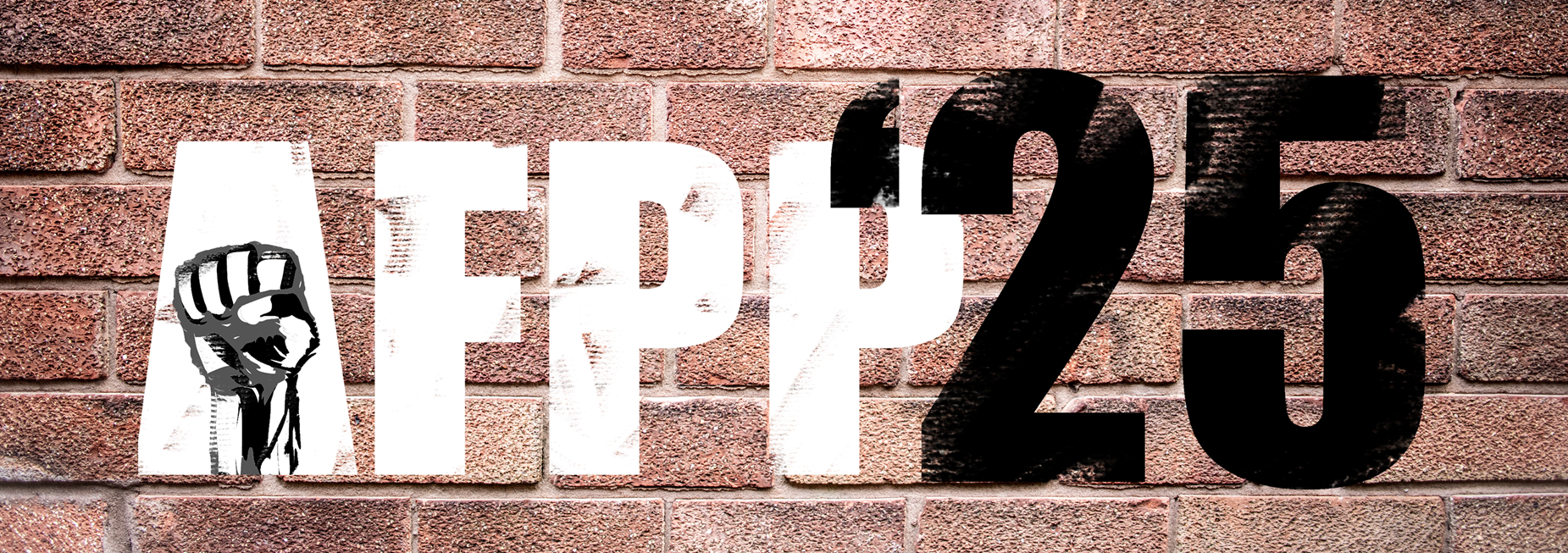
We’re excited to be welcoming over 100 delegates to the 30th Anniversary edition of Alternative Futures & Popular Protest, coming up on 16-18th June 2025. Here’s what you need to know.
Venue
All conference sessions will take place in the Humanities Bridgeford Street Building (building 35 on the campus map). The building is set a little way off Oxford Road, which is a major bus corridor; the nearest car parking is the Booth Street West multistory. (General travel information here.) You can find information on accessibility for the building at AccessAble.
Conference Programme
The programme runs from registration at midday on Monday 16th until 12.30 pm on Wednesday 18th June, with a social meal taking place afterwards, and an opportunity to visit Salford’s Working Class Movement Library (WCML) for those staying on Wednesday afternoon. You can:
- Download the programme booklet (print copies on arrival)
- Download the full abstract book
- Sign up for the WCML tour, along with social meals (info below)
- Read working papers from delegates who have something ready to share. If you’d like to add your paper to the collection, please email it to afpp@manchester.ac.uk.
Social Meals
For those who have registered to join us for food, we’ll be looking forward to continuing discussions at the following locations.
Monday, 6.30pm: Kim’s Kitchen, 49 Old Birley St, Manchester. M15 5RF
Kim’s is an independent café and bar opposite the garden centre in Hulme, an area important in Manchester’s squatting scene in the 1970s/1980s and where some of the bigger coop housing projects are based. Getting there: turn right onto Higher Cambridge Street, which runs behind the HBS building, then turn left at the traffic lights onto Booth St West, follow the road, then the pedestrian footprint, all the way to the end. Kim’s is round the other side of the student buildings and big yellow cooperative housing project. (13 minute walk)
Tuesday, 5.30pm: Sandbar, 120 Grosvenor St, Manchester. M1 7HL
Sandbar is a long-established favourite after-work pub located in an old Industrial Revolution-era mill building. Getting there: go back to Oxford Road and turn left; follow the main road and turn right at the second set of traffic lights onto Grosvenor Street (a park and a pale green modernist building on the corner). Sandbar is a few doors down on your left. (8 minute walk)
Wednesday, 1pm: Platt Fields Market Garden, Platt Fields Park, Manchester. M14 6LT
Platt Fields Market Garden sits on a former bowling green in a city park that has been transformed into an urban community garden space with holds regular workshops and cultural / alternative-food events. Getting there: Either the bus or walking are are straightforward and follow one big road. Turn right onto Oxford Road, and walk up past the hospital and Whitworth Park, through Rusholme to Platt Fields Park on your right. The garden is roughly in the middle, near the tennis courts, the kids playground and the Oxford Road side of the pond. A scenic 30ish mins walk or 15 minutes on our recently re-franchised bus service (opposite side of the road, ask for Platt Fields, nearly all buses go there, certainly the 41, 42, 142, 143 do, it’s a £2 flat fare for a single journey).
